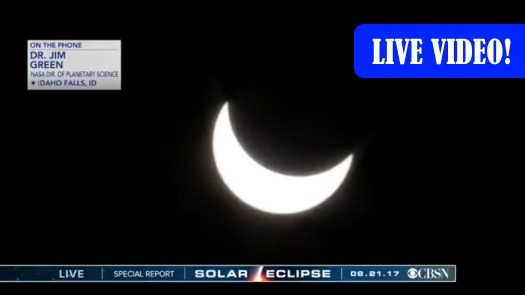
Is There a Brocho to Say When We See An Eclipse?
After receiving many inquiries about whether there is a Brocho to say when seeing today’s solar eclipse, Rabbi Levi Gorelik responds:
The Rebbe was asked this question in 5717 (1957) [see Igrois Koidesh vol. 15 page 260], and the Rebbe responded that a Brocho is not said because we do not say a Brocho which isn’t mentioned in the Gemoro.
[The Rebbe continues with a lengthy explanation as to why it is not mentioned in the Gemoro. Additionally, there is a long Sicha from the Rebbe regarding eclipses in the beginning of Volume 15 in Likutei Sichos].
Safety Reminders from CrownHeights.info:
Please ensure that if you will be outdoors during the eclipse that you or your children do not look up at the sun, since it will not hurt the eyes like regular sunlight does, but can still cause irreversible eye damage and even blindness r”l.
If you have a baby in a stroller, please ensure that the stroller is facing in the opposite direction.
Sunglasses (even several pairs combined) will not protect your eyes from being permanently damaged by the sun’s rays.
If you do not have certified eclipse glasses, you can watch the eclipse by turning on your phone’s selfie camera and watching it on your phone’s screen while facing in the opposite direction of the sun. Alternatively, the eclipse can be viewed live in the video below.
Wishing all out readers a safe afternoon, and a Ksiva Vachasima Tova.











Rabbi Moshe Wiener
The Great American Eclipse of 2017 by Dr. Jeremy Brown, published in http://www.hakirah.org Vol. 23.
The above-referenced article cites and disputes a 1957 responsum from the Lubavitcher Rebbe which attempts to resolve the apparent contradiction between the Talmudic approach to solar eclipses and their scientific predictability based on the fact that while a solar eclipse is predictable, the local weather is not. It should be noted that the Lubavitcher Rebbe himself disputes this same approach for similar reasons as those proposed by Dr. Brown in his treatise regarding eclipses published in Likutei Sichos volume 15 page 7ff. In the same sicha, the Lubavitcher Rebbe also presents and takes issue with the proposed resolutions of R. Yonason Eibeschutz and R. Dovid Pardo for similar (and additional) reasons as those advanced by Dr. Brown in this article. Further, the Rebbe proposes a totally different resolution which is not cited by Dr. Brown.
Also, the citations in footnotes 6 and 11 in Dr. Brown’s published article to Igros Kodesh 15:1079 should be corrected to read Igros Kodesh 15:5579.
Regarding the second reason proposed by the Lubavitcher Rebbe for why no berachah is said on seeing a solar or lunar eclipse (because an eclipse is a sign of forthcoming disaster), which is also challenged by Dr. Brown – it should be noted that the Rebbe’s explanation is shared also by the Steipler Gaon (see Orchos Rabeinu volume 1 page 95).